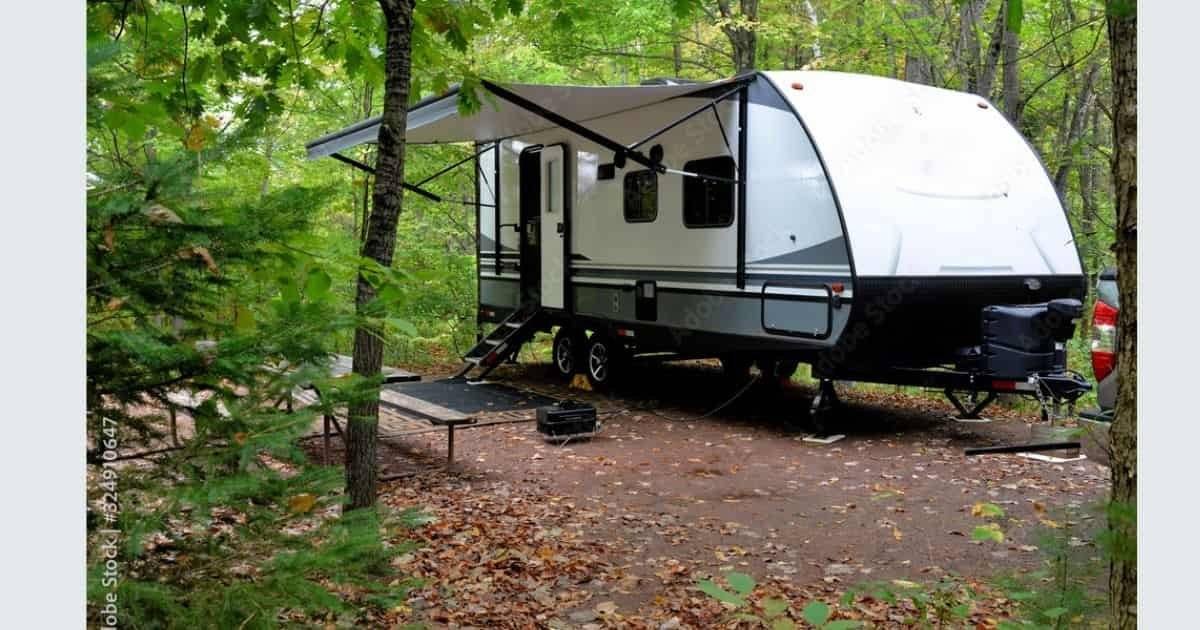you enjoy going on road trips, you might want to buy a travel trailer—or maybe you already own one! Either way, you should protect this valuable asset with travel trailer insurance.
Many people mistakenly believe that their auto insurance policy automatically covers travel trailers, but this isn’t always true. To protect your travel trailer from risks like theft, vandalism, and collisions, it’s essential to have trailer insurance.
What is travel trailer insurance?
Travel trailer insurance is a special kind of auto insurance. It works much like regular car insurance but is made to protect non-motorized travel trailers. This includes fifth-wheel trailers, stationary travel trailers, park model trailers, truck-mounted campers, and pop-up campers.
Does car insurance cover travel trailers?
Many people assume their regular car insurance covers travel trailers, but in most cases, it doesn’t. Standard car insurance typically only protects your trailer when it’s hitched to your vehicle. Once it’s parked, like in your driveway, it’s not covered.
So, if your trailer gets damaged while parked at home, your insurance won’t pay for repairs. You’d have to foot the bill yourself.
Even if you have comprehensive or collision coverage for your car, it won’t extend to your trailer if it’s stolen or vandalized. To fully protect your trailer, you’ll need a separate insurance policy or add an endorsement to your current one.
If you regularly tow a trailer or keep one parked at home, it’s wise to invest in specific trailer insurance.

Is travel trailer insurance required by law?
No, travel trailer insurance is not required by law in Canada. Because travel trailers are non-motorized, they don’t have the same insurance requirements as vehicles. Legally, you can tow your travel trailer without insurance as long as the towing vehicle is insured and registered.
However, it’s important to note that auto insurance is mandatory for all drivers in Canada. Driving without it can lead to severe penalties such as hefty fines, license suspensions, and even jail time, depending on the province.
Even though it’s not mandatory, it’s highly recommended to get a specialty insurance policy or endorsement specifically for your travel trailer. Without this coverage, you leave yourself vulnerable to various risks.
For comprehensive protection for your travel trailer, regardless of how you use it or what may happen, purchasing travel trailer insurance is advisable.
Types of travel trailers
Various types of travel trailers can be insured, each serving different needs:
- Fifth-wheels: These trailers hitch to a pickup truck for towing and offer spacious interiors.
- Pop-up campers: Also known as tent trailers, these foldable trailers provide compact and lightweight options for camping.
- Stationary travel trailers: These trailers are set in a permanent location, and often used as a second home.
- Park model travel trailers: Similar to stationary trailers, these are designed for long-term stays in RV parks or resorts.
- Truck-mounted campers: These compact units are mounted onto the bed of a pickup truck, offering versatility and mobility.
- Hybrid travel trailers: Combining elements of tent trailers and hard-sided trailers, these offer flexible living and sleeping spaces.
- Tent trailers: Lightweight and easy to tow, these trailers fold down for travel and expand into tent-like accommodations.
Depending on the type of travel trailer you own, you may be able to add it to your existing home or auto insurance policies. However, it’s important to note that motorized travel trailers like RVs and motorhomes require separate insurance policies due to their motorized nature and transportation capabilities. The cost of insurance for your recreational vehicle will vary based on usage frequency, insurance claims history, and the trailer’s age and value.
Why do I need travel trailer insurance?
Travel trailer insurance is essential because, without it, your trailer isn’t protected in many situations. For instance, once it’s disconnected from your vehicle, it’s no longer covered. If it’s damaged or vandalized while parked at home or a campsite, your regular car insurance won’t cover the costs.
When you get insurance for your travel trailer, you’re safeguarding your investment from risks. Vehicle damage can lead to significant financial losses if you’re not insured. That’s why having travel trailer insurance is crucial for protecting yourself from potential financial hardship.


